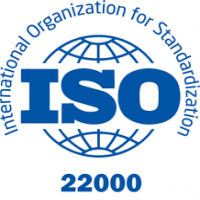Your Journey to Quality Perfection: ISO 9001 Training

I. Introduction
A. Brief Overview of ISO 9001 Quality Management System (QMS)
ISO 9001 is an internationally recognized Quality Management System (QMS) standard that outlines requirements for organizations to demonstrate their ability to consistently provide products and services that meet customer and regulatory requirements. It focuses on enhancing customer satisfaction through effective application of the system, including processes for continual improvement and assurance of conformity to customer and applicable statutory and regulatory requirements.
B. Importance of ISO 9001 Training for Organizations
ISO 9001 training is crucial for organizations seeking to implement and maintain an effective QMS. Training ensures that employees understand the requirements of the ISO 9001 standard, their roles in quality management, and how to effectively contribute to achieving organizational objectives. It fosters a culture of quality, improves process efficiency, and enhances customer satisfaction by ensuring consistent delivery of products and services that meet or exceed expectations.
C. Overview of the Blog Content
In this blog, we will delve into the significance of ISO 9001 training for organizational success. We will explore the fundamentals of ISO 9001 QMS, the benefits of training programs, and how training supports compliance and continuous improvement. Additionally, we will provide insights into key elements of ISO 9001 training, considerations for selecting training providers, and real-world examples of successful implementations. By the end, readers will have a comprehensive understanding of why ISO 9001 training is essential and how it can contribute to achieving business excellence.
II. Understanding ISO 9001
A. Definition and Principles of ISO 9001 QMS
ISO 9001 is a globally recognized Quality Management System (QMS) standard developed by the International Organization for Standardization (ISO). It sets out criteria for a QMS that helps organizations consistently meet customer requirements and enhance satisfaction. The principles of ISO 9001 include customer focus, leadership, engagement of people, process approach, improvement, evidence-based decision making, and relationship management. These principles guide organizations in achieving quality objectives and continual improvement of their QMS.
B. Benefits of Implementing ISO 9001 in Organizations
Implementing ISO 9001 brings numerous benefits to organizations, including enhanced efficiency and productivity, improved customer satisfaction, and increased profitability. By adopting systematic approaches to quality management, organizations can streamline processes, reduce waste, and optimize resources. ISO 9001 certification also enhances credibility and competitiveness in the marketplace, demonstrating commitment to quality and customer focus. It provides a framework for consistent performance improvement and helps organizations meet regulatory requirements and win new business opportunities.
C. Industries and Sectors That Benefit from ISO 9001 Certification
ISO 9001 certification is beneficial across various industries and sectors, including manufacturing, services, healthcare, construction, and automotive. Any organization that aims to improve customer satisfaction, operational efficiency, and overall performance can benefit from implementing ISO 9001. Industries such as aerospace, electronics, food and beverage, and information technology particularly benefit due to their complex supply chains and stringent quality requirements. ISO 9001 provides a structured framework for organizations to manage quality effectively, mitigate risks, and achieve sustainable growth and success.
III. Importance of Training in ISO 9001
A. Role of Training in ISO 9001 Implementation
Training plays a critical role in the successful implementation of ISO 9001 by ensuring that employees understand the QMS requirements, their roles, and responsibilities. It builds competence among staff in executing processes, handling documentation, and maintaining quality standards. Effective training fosters employee engagement and commitment to quality, aligning organizational objectives with ISO 9001 principles. It empowers employees to contribute actively to quality improvement initiatives and enhances overall organizational performance.
B. Types of ISO 9001 Training Programs Available
ISO 9001 training programs cater to various organizational needs, from introductory courses for beginners to advanced training for internal auditors and QMS managers. Common types include awareness training to introduce employees to ISO 9001 concepts, implementation training for those involved in QMS setup, internal auditor training to conduct audits, and lead auditor training for certification audits. Tailored workshops and online courses offer flexibility to meet diverse learning styles and organizational requirements, ensuring comprehensive coverage of ISO 9001 principles and practices.
C. How Training Supports Continuous Improvement and Compliance
Training is instrumental in fostering a culture of continuous improvement within organizations certified to ISO 9001. By educating employees on quality management principles and techniques, training enables them to identify process inefficiencies, non-conformities, and opportunities for improvement. It equips personnel with skills to implement corrective and preventive actions effectively, ensuring ongoing compliance with ISO 9001 requirements. Regular training updates employees on evolving standards and regulatory changes, maintaining QMS relevance and effectiveness. Training thus serves as a cornerstone for achieving and sustaining high levels of quality, customer satisfaction, and organizational success.
IV. Key Elements of ISO 9001 Training
A. Understanding the Requirements of ISO 9001:2015 Standard
ISO 9001:2015 specifies requirements for a Quality Management System (QMS) that organizations can use to demonstrate their ability to consistently provide products and services that meet customer and regulatory requirements. Training on ISO 9001:2015 helps participants grasp the standard's clauses, including context of the organization, leadership, planning, support, operation, performance evaluation, and improvement. Understanding these requirements is crucial for effective QMS implementation and achieving certification.
B. Developing a Training Plan Aligned with ISO 9001 QMS
Developing a training plan aligned with ISO 9001 QMS involves several steps. Start by conducting a training needs analysis to identify competency gaps and training priorities based on organizational roles and responsibilities. Define training objectives, specifying learning outcomes aligned with ISO 9001 requirements. Design training materials and methods that cater to different learning styles and organizational contexts. Implement the training plan with clear schedules, responsibilities, and evaluation criteria. Regularly review and update the plan to ensure relevance and effectiveness in supporting QMS implementation and continuous improvement efforts.
V. Benefits of ISO 9001 Training
A. Improved Employee Competence and Awareness
ISO 9001 training enhances employee competence by providing them with the knowledge and skills needed to effectively implement and maintain a Quality Management System (QMS). Training increases awareness of quality standards, roles in QMS processes, and the importance of adhering to procedures. This improved competence empowers employees to contribute more effectively to quality objectives, engage in continuous improvement initiatives, and uphold organizational quality standards.
B. Enhanced Quality Performance and Customer Satisfaction
Training in ISO 9001 principles and practices fosters a culture of quality throughout the organization, leading to enhanced quality performance. By understanding and implementing QMS requirements, employees contribute to consistent product and service quality, reducing defects and non-conformities. Enhanced quality performance translates into higher customer satisfaction, as products and services meet or exceed customer expectations. Satisfied customers are more likely to return, recommend the organization, and contribute to sustained business growth.
C. Cost Savings and Operational Efficiencies
ISO 9001 training supports cost savings and operational efficiencies by optimizing processes and minimizing waste. Employees trained in QMS principles identify and address inefficiencies, reducing rework, scrap, and downtime. Improved process control and adherence to standards lead to fewer errors and defects, lowering costs associated with corrective actions and warranty claims. Operational efficiencies gained through ISO 9001 training enhance productivity, resource utilization, and overall organizational performance. These savings contribute to improved profitability and competitiveness in the marketplace, positioning the organization for long-term success.
V. Conclusion
A. Recap of the Importance of ISO 9001 Training for Organizational Success
ISO 9001 training is instrumental in equipping organizations with the knowledge and skills needed to implement and maintain a robust Quality Management System (QMS). It ensures that employees understand their roles, responsibilities, and the principles of quality management, fostering a culture of continuous improvement and adherence to international standards. Training enhances competence, awareness, and operational efficiency, contributing to overall organizational success and sustainability in a competitive market environment.
B. Encouragement to Invest in ISO 9001 Training for Long-Term Benefits
Investing in ISO 9001 training is a strategic decision for organizations committed to achieving long-term benefits and excellence in quality management. By educating employees at all levels on QMS principles and practices, organizations empower their workforce to drive quality improvements, customer satisfaction, and operational efficiencies. Training cultivates a culture of quality consciousness and continuous learning, enabling organizations to adapt to changing market demands and regulatory requirements effectively.
C. Call to Action: Resources for Further ISO 9001 Training and Implementation Support
For organizations interested in furthering their ISO 9001 training initiatives, numerous resources are available. Consider enrolling in accredited training courses offered by recognized providers or consulting with experienced ISO 9001 consultants. Access online resources, webinars, and workshops dedicated to ISO 9001 implementation and best practices. Leverage industry associations, certification bodies, and professional networks for guidance and support in navigating QMS requirements. By investing in ongoing training and implementation support, organizations can optimize their QMS effectiveness and drive continual improvement in quality and business performance.
Note: IndiBlogHub features both user-submitted and editorial content. We do not verify third-party contributions. Read our Disclaimer and Privacy Policyfor details.



